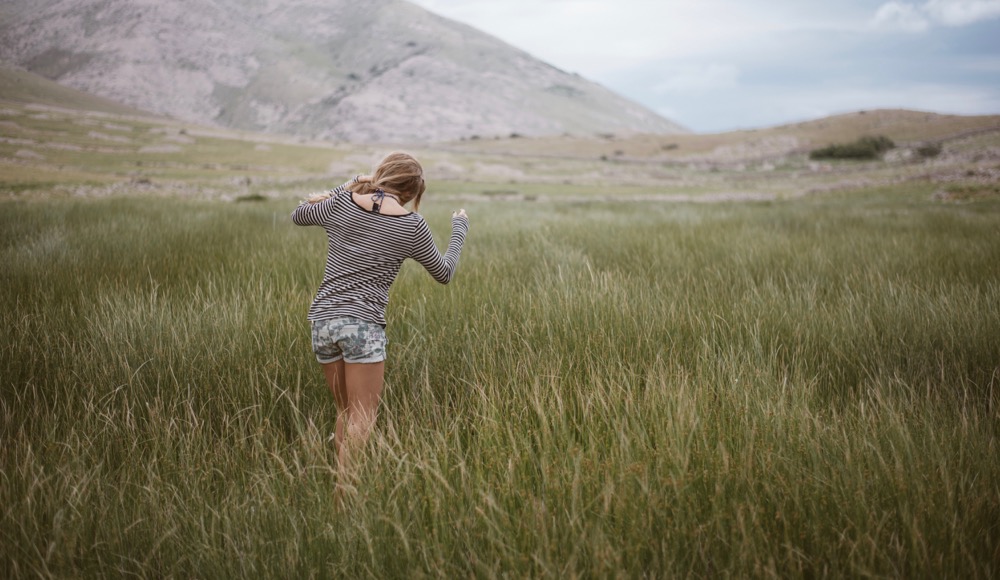The Interview Project: A Crowdsourced Documentary That You Can Be a Part of

If there’s one thing I’ve learned in my years as a recruiting blogger, it’s that slipping the word “interview” into the title of your post is a surefire way to get some clicks.
That sounds really cynical, but there’s a good reason for this: Job interviews are weird. They seem to operate according to their own rules and protocols – rules and protocols that are totally removed from the dictates of regular life. Of course job seekers and recruiters alike constantly hunger for insights into the interview process: We all need as much help as we can get when it comes to mastering this alien form of conduct and communication.
And that’s why I find The Interview Project so compelling. David Brown, the man behind the project, wants to create a documentary about the interview process. He’s looking to go beyond the surface-level tips and tricks that are so abundant and delve into the heart of the matter. According to Brown, “[T]he interview process starts the day you believe you can do something better.”
Brown is looking for help in making this documentary a reality. Check out this video, where he explains the project in more detail. Then, scroll down to our interview with Brown to learn even more about the project and how you can get involved:
Recruiter.com: Let’s start with an overview: Tell us aboutThe Interview Project. What are you aiming to do? How did the idea come about?
David Brown: My objective is to create something useful and entertaining about a subject that has everything to do with the direction of our professional careers. A negative or positive result from an interview can change the approach we take to our careers, so it’s a subject we all have a vested interest in. I’m aiming to gather the best insights and experiences to tell a story about why interviews are even more important that we think.
The idea came about mainly because I’ve done many interviews in my career, and I discovered much about myself along the way. I’m fascinated by the personal growth that occurs during the process of interviewing. We progress more in the few months that we’re looking for a job than we do in three years once we’re settled into a role, and it’s because we’re projecting ourselves into the future and taking a bet on our skills and aptitudes.
RC: As you mention in the video, a lot of the interview-related content on the Web is pretty superficial. Why do you think we get so hung up on the small stuff when it comes to job interviews?
DB: I think we tend to focus on the final specifics rather than the basic premises of where we’re going professionally. For a pilot, a crucial moment is landing the plane, and a similar approach is what stresses us before an interview – that’s where most articles focus. But the bigger question is, in what direction are we headed? If you examine that question from both sides of the table, then you’ll be more successful at interviews.
RC: In the video, you say the interview process starts “the day you believe you can do something better.” Can you elaborate on this idea a bit? How would you describe the interview process from this perspective?
DB: Doing something better can mean a lot of things, from better pay to more responsibility or better work-life balance. The desire to better yourself can be sparked for many reasons.
The whole interview process starts with this spark, which occurs well before the job is ever posted. You have to examine your interests and give reasons to yourself why you can move forward professionally. This leads to taking actions that prepare you for the future, be it training, study, or mentoring, and it culminates with you proving to a hiring manager that you can do the job better than anyone else.

DB: “Selling yourself” is a difficult thing to understand for a lot of people, but it’s really about understanding your own professional proposition and consistently making value-added statements during the interview. I want to hear from others how they develop their personal sales pitches and how they carry them out.
The elevator speech is the key to getting around the typical interview processes, but even if you never run into a CEO in a lobby, you still benefit from succinctly expressing to others what you want to do.
Interviews are moments of intense pressure on both sides, and this creates some very funny outcomes. The project needs to capture this because it relativizes the importance of the situation and shows that being natural is just as important as being serious.
These questions are important because they are basics that help start the conversation about interviews, but I don’t want to limit anyone from sharing viewpoints they consider important.
RC: Why should job seekers take the time to understand the interview process from the other side of the table (i.e., from the hiring manager’s/recruiter’s point of view)? What’s the benefit for them? Do hiring managers/recruiters benefit from learning the job seeker’s perspective?
DB: As I mentioned before with the example of the pilot, a company is interested in everyone flying in the same direction – and they are the ones paying for the flight, so it’s crucial to be aligned.
That being said, the tools available today are providing more options to job seekers and therefore shifting the balance of power toward the candidates. Recruiters and hiring managers need to understand this and remember that hiring is a two way street – they also need to sell themselves or their offers will get passed over.
RC:So, how can readers get involved with the documentary?

Then, you need to record yourself. Try to be concise. I suggest limiting the sections to 90 seconds. A quick tip is to not look directly into the camera when you are recording, but just to the side. Then, send the file in .mov or .mp4 format to the link to shineBIG that is embedded in the YouTube video [Ed. note: You can also access shineBIG here ]. I’ll get back to you with feedback and keep you up to date as the project moves along.

